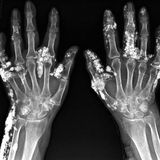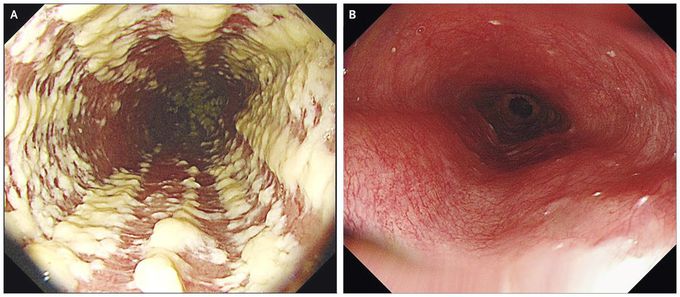


Candida Esophagitis
A 72-year-old man presented with a 2-week history of odynophagia (pain on swallowing). Sixteen months before the onset of this symptom, the patient had received a diagnosis of diffuse panbronchiolitis, and he had been receiving long-term treatment with macrolide antibiotics since then. He had not received glucocorticoids or other immunosuppressant medications. Upper endoscopy revealed linear, white, mucosal, plaquelike lesions on the esophagus (Panel A). No oropharyngeal or gastroduodenal lesions were noted. The diagnosis of candida esophagitis was made on the basis of the characteristic endoscopic findings and was confirmed by a culture of esophageal brushing samples that was positive for Candida albicans. A serologic test for human immunodeficiency virus was negative. Candida esophagitis is a common opportunistic infection in immunocompromised hosts. Long-term treatment with antibiotics can be a risk factor in immunocompetent patients. Oral antifungal therapy was initiated in the patient, and within 2 weeks after starting therapy, his pain on swallowing was reduced. A repeat endoscopy performed 12 weeks after the initiation of antifungal therapy showed a marked reduction in the number and severity of esophageal lesions (Panel B). Takeshi Kondo, M.D. Kazuhiko Terada, M.D. Chiba University Hospital, Chiba, Japan source: nejm.org

